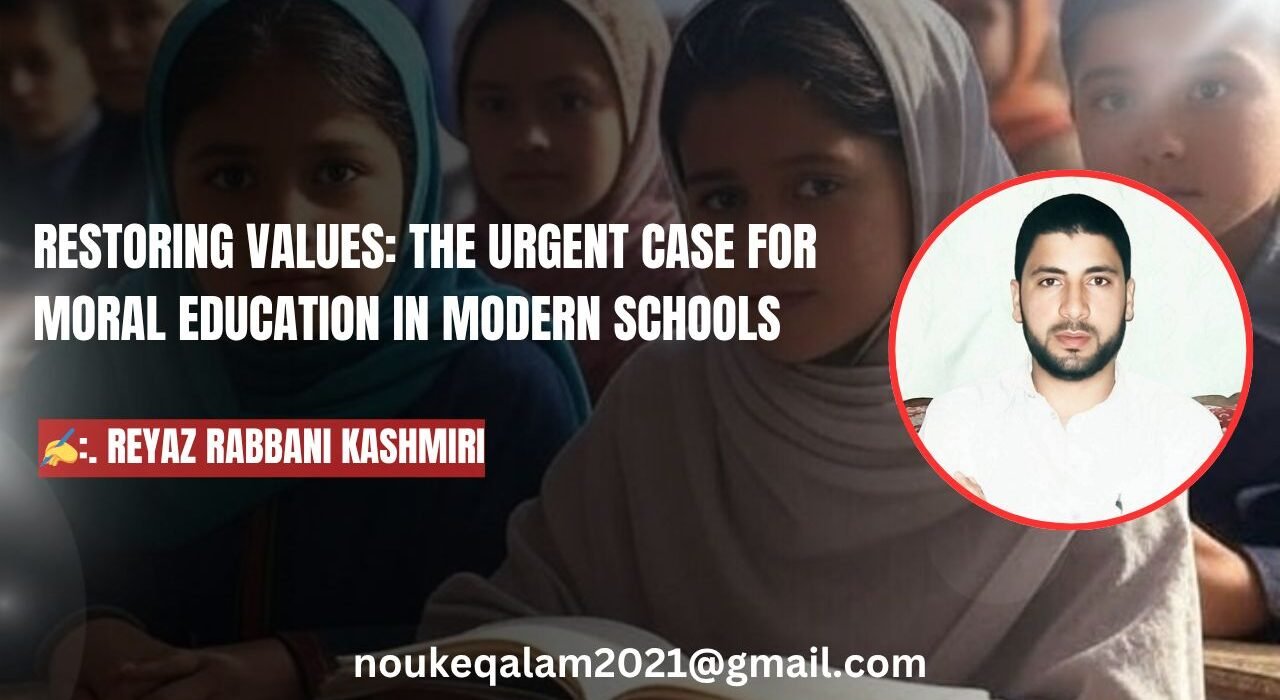In today’s fast-paced world, the younger generation is increasingly becoming aggressive and detached from moral values. The rapid advancement in science and technology, coupled with materialistic pursuits, has overshadowed the essence of humanity and ethical living. This alarming trend calls for immediate intervention. One essential step is the introduction of moral education, counseling, and spiritual teachings in every school to help shape responsible, empathetic, and ethical citizens.
Undoubtedly, our children need to become scientists, doctors, engineers, administrators, and other professionals. However, their professional success should not come at the cost of their moral and ethical grounding. Alongside academic excellence, they must be nurtured to become compassionate individuals who value relationships, respect their elders, support the underprivileged, and contribute positively to society. A well-rounded education must focus on both intellectual development and character building to create responsible future citizens who uphold justice, kindness, and integrity.
In the past, schools and homes were centers of moral and ethical teachings. These lessons were deeply rooted in the upbringing of children, producing simple, disciplined, and God-fearing generations. Such individuals, despite having fewer academic degrees, were humble, responsible, and morally upright. They lived in harmony with nature, respected resources, and upheld communal and familial bonds.
Conversely, today’s generation—though more qualified on paper—often lacks these fundamental human virtues. The growing selfishness, greed, and disregard for environmental conservation are alarming. Educated individuals are seen polluting rivers, lakes, streets, and forests by carelessly discarding garbage, diapers, and litter. The shift from a God-fearing to a materialistic mindset has led society toward moral decay, making it difficult to differentiate between knowledge and wisdom.
If this downward trend continues, we may soon witness a world where moral decadence outweighs intelligence, leading to anarchy and destruction. A society that fails to instill human values in its children is bound to face chaos. The essence of true education lies not only in acquiring knowledge but in cultivating wisdom, ethical decision-making, and respect for life.
To reverse this decline, moral education must be prioritized in both government and private educational institutions. Alongside science, mathematics, and social studies, there must be a dedicated curriculum for ethical, moral, and spiritual learning. This education should be emphasized strongly. Children must be taught:
The importance of caring for and honoring parents and family members.
The value of kindness and supporting the underprivileged.
The significance of preserving natural resources and keeping public spaces clean.
The importance of truthfulness in both personal and professional life.
The practice of patience, humility, and self-restraint in facing life’s challenges.
Teachings that promote inner peace, gratitude, and a connection with a higher purpose.
If we fail to address this moral crisis now, we may soon find ourselves unable to guide the very generation we have raised. The future of society depends not just on educated individuals but on ethical human beings with a conscience.
While the National Education Policy (NEP) 2020 emphasizes innovative strategies and modern pedagogies in education, technology, and science, it is equally crucial to focus on nurturing responsible and virtuous citizens to build a strong, peaceful, and healthy nation.
A concerning number of educated youth have turned to drug addiction and exhibit irresponsible behavior in society, often failing to establish careers. This trend poses a serious threat to societal well-being. One contributing factor is the lack of proper counseling and moral education during their schooling years. Integrating comprehensive counseling and moral instruction into the curriculum is essential to address this issue and guide youth toward positive contributions.
Therefore, moral education should not be treated as an additional subject—it must be at the very core of our educational system. Let us strive to cultivate generations that excel not only in their careers but in character, ensuring that our world remains a haven of peace, respect, and righteousness. Education should not merely produce professionals—it must first create good human beings. Let morality and humanity be at the heart of learning so that we may truly build a better world.






